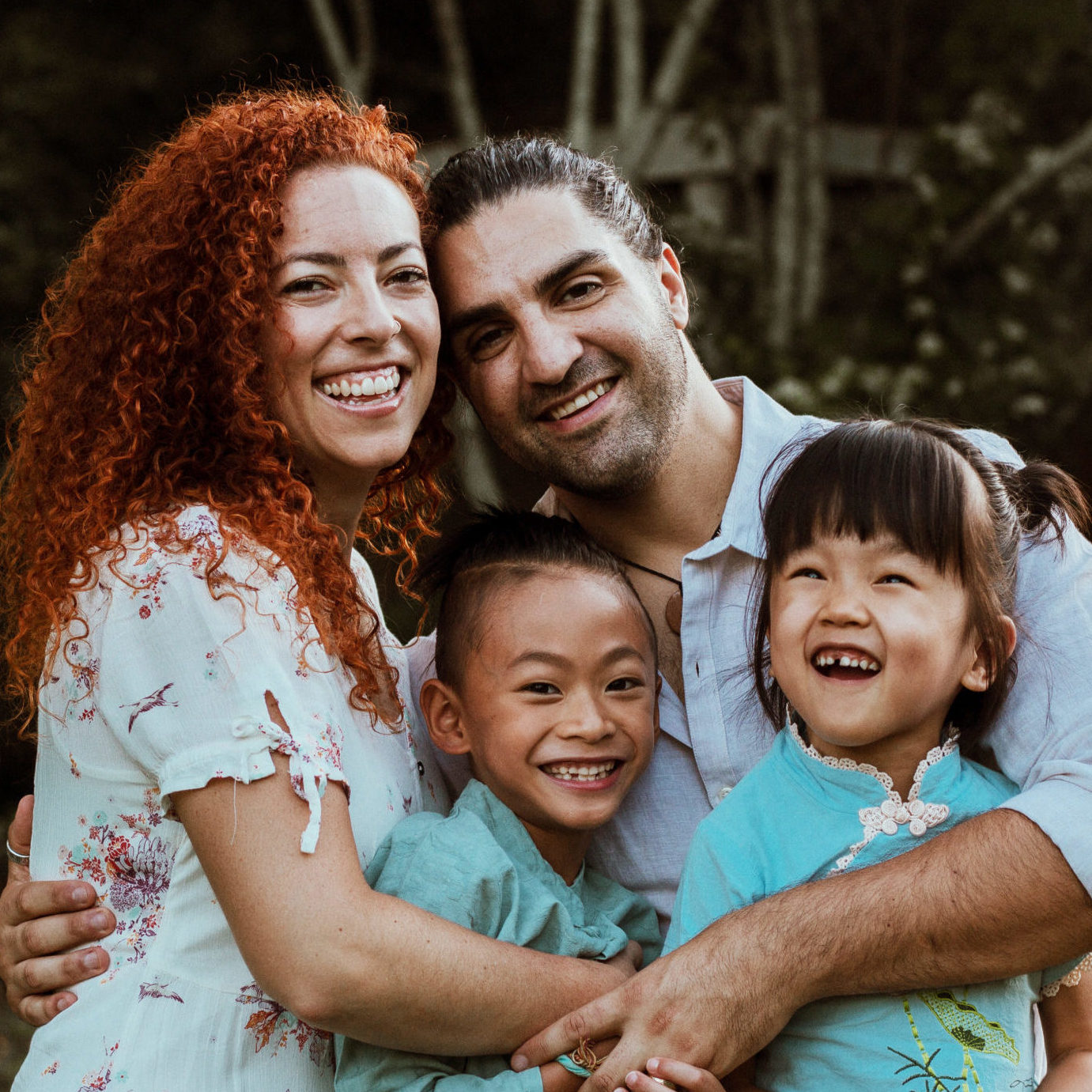New Pathways

When Addison Futrell asked her husband, Bailey, to attend an informational foster care meeting, they figured that, at the very least, they could leave and know it was not the direction they needed to go as a family. However, they were both surprised when their reactions were the opposite of that.
“Just hearing the numbers is overwhelming, and to realize that it is in your backyard, it’s hard to walk away from,” Addison said. “I just remember being like, ‘OK, God, I’m in. I don’t know what it looks like, but I’m in.’”
Two months later, the Futrells started the process to begin foster care, and shortly thereafter, their son, Josiah, was placed with them, just three months after attending that informational meeting.
“And he never left!” Bailey said.

Josiah suffered a traumatic brain injury when he was 7 months old. When he first came to live with Addison and Bailey, he couldn’t sit up or even roll over on his own. Every doctor and neurologist said they weren’t sure what his life would look like, given the unique nature and wide range of statistics on brain injuries.
He soon started a wide variety of therapies and neurology appointments. Because of how spastic his leg muscles were, even leg braces and physical therapy were too intense for him to handle. This was when they learned about a surgery option that could help release his muscles. Unfortunately, there are only three doctors in the U.S. who perform this surgery, and they are all out of state from the Futrells. Although Josiah has Medicare coverage because of his time spent in foster care, he is only covered in the State of Kentucky, where the family lives.
When Addison and Bailey started researching different options to pay for this surgery, they came across Show Hope. Addison immediately recognized Show Hope because she is a pediatric mental health counselor, specifically serving children impacted by foster care and adoption. Previously, she received a TBRI® (Trust-Based Relational Intervention®) Practitioner Training grant from Show Hope. With the prior knowledge of Show Hope, they applied for a Show Hope Medical Care grant and were awarded.
The family traveled to Galveston, Texas, where Josiah had the surgery. After spending three months in casts, everything started to change when the casts were removed. Doors started to open, and everyone’s perspectives started to shift. For example, Josiah’s sleep started to improve, and he also began running, jumping, walking, and going up and down stairs.

After paying for the surgery, there was still money left in the Show Hope grant, so Addison started researching other therapies, specifically physical therapies for brain injuries. Through this research, she found Red Light Laser Therapy, with a pediatric specialist located in Des Moines, Iowa.
With these therapy intensives, the family travels to Iowa for a week, and for three to four hours a day, a doctor uses lasers on different parts of Josiah’s brain to decrease injury and increase blood flow. This is combined with physical therapy, occupational therapy, and stimulating activities. This stimulation teaches the brain that these movements can be done, and these parts of the brain can be activated, creating new pathways in the brain.
With the remaining funds from their first Medical Care grant, the Futrells were able to pay for the first intensive, and since then, the family has applied for and received a second Medical Care grant for continuing therapies.
“Josiah loves it and has made a lot of progress,” Bailey said. “Everyone has been pleased with his progress.”
Josiah, who is now 6, is described by his parents as an “energizer bunny.”
“He wakes up at 6:00 a.m., and he goes for 12 hours,” Bailey said. “Josiah doesn’t stop all day long and is full of energy. He loves to throw things, run, and jump. He wants to be moving.”
Josiah also loves basketball. The Futrells live in a small town that has a college basketball team, and Josiah gets to attend all of the practices and knows all of the fight songs and cheers.
“He honestly knows more people in the town than we do,” Addison said. “We can’t go anywhere without somebody knowing Josiah.”

Another thing Josiah is good at is surprising his team of doctors with his progress.
“It is always fun to go to doctors and hear them say, ‘Wow, this isn’t what we were expecting!’” Addison said.
“I can 100 percent say that Josiah’s life would look differently without the grant that Show Hope has given him to do things that wouldn’t have been possible if it was our own financial means,” Bailey said. “We love him and would have tried everything possible, but the surgery and therapy in Iowa just wouldn’t have been possible. There is no doubt that they are changing his life, growing his brain, and allowing him to do things that neurotypical kids do that many doctors have questioned if he will be able to do.”
Along with Josiah’s own healing and progress, the Futrells are also seeing Josiah’s impact help to create new pathways to healing in the State of Kentucky. There is a trust fund in the state for brain injuries, and recently, Addison and Bailey took Josiah’s case and presented it to the committee. The committee voted unanimously to approve the red light laser device, and Josiah will be the first person in the state to receive one.
“To be able to accept that Show Hope grant, go to Iowa, do what new research is showing, and then to be a part of change in our state shows the ripple effect,” Addison said. “This is God saying, ‘Don’t just keep this to yourself, go and fight for this.’
“[The Show Hope Medical Care grant] is not stopping with our family,” Addison continued. “Through laws being changed and even in my own practice—New Pathways—being able to give people hope and being able to say, ‘This was provided for us. Check it out—look at what they are doing.’ Whether it is TBRI, adoption funding, or Medical Care grants, it’s just not stopping with that one [grant]. There are a lot of ripple effects, and we are so grateful for that.”
This June, we are raising $100,000 for Maria’s Miracle Fund to benefit the ongoing work of Show Hope’s Medical Care grants.
Will you join us and give today?





